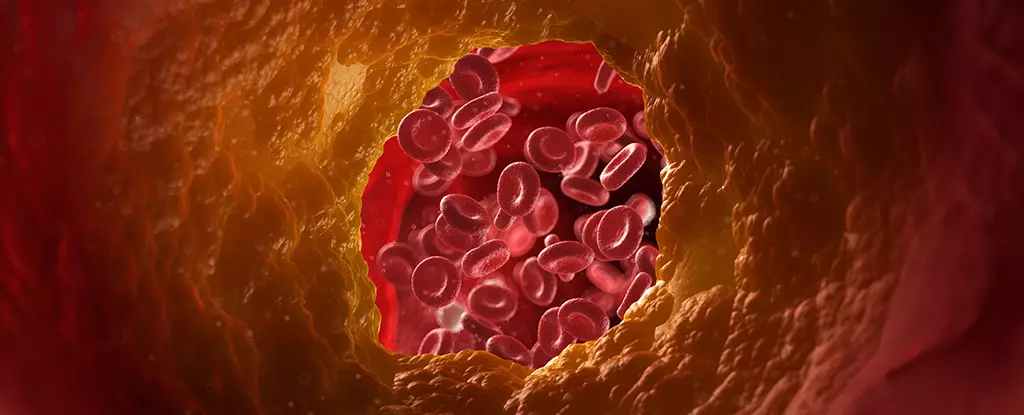Cardiovascular diseases continue to be a leading cause of mortality worldwide, prompting researchers to explore advanced methodologies for prevention and treatment. Traditional interventions have been centered around lifestyle changes, such as improved diet and regular exercise, but recent scientific advancements promise new avenues for combating severe conditions like atherosclerosis, characterized by the buildup of plaques in the arteries. A pioneering study combines the potential of nanotechnology with immunology to propose a method that could effectively clear artery-clogging plaques.
Atherosclerosis is a chronic condition that exemplifies the gradual deterioration of cardiovascular health, fueled by the accumulation of cholesterol, dead cells, and other deleterious substances within arteries. This condition leads to the thickening and stiffening of arterial walls, restricting blood flow and eventually causing severe complications such as heart attacks or strokes. The conventional approach to managing atherosclerosis primarily focuses on medication and lifestyle modification, yet these strategies do not always yield significant long-term benefits.
Recent research, led by teams from Michigan State University and Stanford University, has introduced an innovative technique involving carbon nanoparticles aimed at disrupting the plaque formation process. This pioneering approach presents a novel method to procure significant reduction in arterial plaque through targeted therapy.
The utilization of nanoparticles in medical science is an exciting frontier; these minute particles, measuring less than a human hair, are being engineered to deliver drugs directly to specific sites in the body. In this study, researchers successfully employed nanoparticles loaded with an immune-activating drug, demonstrating a profound reduction in plaque in pig models suffering from atherosclerosis. This advance in targeting atheromatous lesions signifies a remarkable stride in cardiovascular treatment options.
The effectiveness of the therapy was closely monitored using positron-emission tomography (PET) scans, which allowed for real-time visualization of changes in the arterial conditions post-therapy. The collaboration between high-resolution imaging and innovative drug delivery showcases the multidisciplinary nature of modern medical research.
At the core of the nanoparticle therapy’s success lies the concept of efferocytosis. This natural process enables the immune system to clear away dead or damaged cells that contribute to plaque formation. In scenarios where plaque builds up excessively, efferocytosis can become ineffective, leading to more severe cardiovascular damage. Researchers leveraged this mechanism, reactivating it using the novel nanoparticles to facilitate the removal of arterial debris without causing collateral damage to surrounding healthy tissue.
By scaling up this delivery method for larger animal models, the researchers have set the stage for potential human applications. The favorable outcomes observed in pigs are promising, indicating a substantial leap towards clinical trials.
The results from this study spark optimism for the future of cardiovascular health management. With atherosclerosis being among the leading causes of death globally, the need for effective treatments is paramount. While traditional methods remain important, the integration of nanotechnology into therapeutic strategies could offer an additional, and possibly more effective, way to combat plaque buildup.
Moreover, the safety profile of these nanoparticles in the study allays concerns about potential side effects, which could include damage to healthy cells and resultant complications such as anemia. The researchers reported no adverse effects, underscoring the precision of the targeted therapy and providing strong grounds for further exploration of its application in humans.
As this research progresses, the implications extend beyond basic science into practical, everyday healthcare solutions. The next steps involve preparing these nanoparticle agents for human clinical trials, a critical phase that will determine their efficacy and safety in diagnosing and treating atherosclerosis in populations at risk.
In culmination, the convergence of nanotechnology and immunology stands to revolutionize the landscape of cardiovascular care. This innovative approach not only enhances our arsenal against diseases like atherosclerosis but also embodies the future of personalized medicine, where treatments can be tailored more precisely to individual needs. The quest for cleaner, healthier arteries may soon become a reality, offering hope to millions grappling with cardiovascular issues.


Leave a Reply